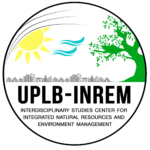Science and Engineering Journal Volume 16 (Supplement): The farming community of Mogpog, Marinduque has been beset by problems caused by soil contamination from mine tailings since two mining disasters happened in 1993 and 1996 alongside current fall-out from a mined-out site undergoing rehabilitation. Crop productivity declined due to copper toxicity and farmer incomes have diminished as a result, thus contributing to the poverty in the area. This is on top of the problems with pests, diseases, and climate-related phenomena even while the farmers are continuously impoverished by the effects caused by mine tailings spill that occurred >24 years ago. A project funded by DA-BAR (2017-2021) was conducted to help alleviate the constraints to crop productivity due to heavy metal toxicity, mitigate the effects of pests, diseases and other abiotic stressors, and increase crop yields and farmer incomes through the use of ecological management practices involving the use of two Trichoderma technologies (TT) namely, Trichoderma compost activator (TCA) and Trichoderma Microbial Inoculant (TMI). During the three years of project implementation, the farmers experienced the effects of El Niño and the pandemic. Through it all, Trichoderma technologies have helped increase their harvests by 12-81%, promoted resilience of crops to drought and pest pressure as attested by the farmers in interviews and surveys, saved money through reduced inputs of fertilizers and pesticides, and helped to manage crop residues through in situ composting that added organic matter in the field thus promoting sustainable use of natural resources. A field study conducted in 2020 showed that the technologies aided in the partial remediation of soil copper through the combined action of compost and TMI. The research project showed that Trichoderma technologies are instrumental in promoting sustainability, resilience, and environmental rehabilitation in copper-contaminated agricultural areas. These technologies help address concerns related to poverty, food security, health, economic growth, and responsible production.
